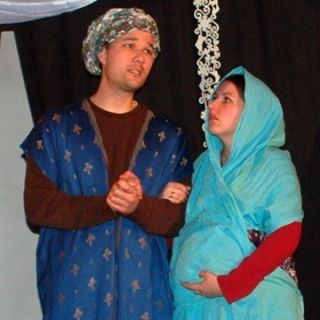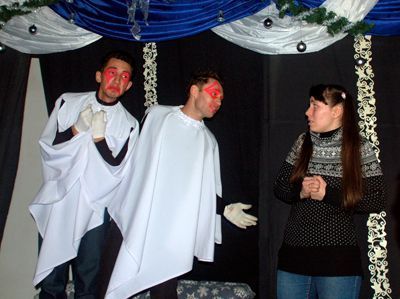
Christmas play offers a new twist on an old story
By Martina B. in Ulan-Ude
We were excited about this play for a couple of reasons. First, it was going to clearly explain the birth of Christ to those unbelievers who had been invited. For many, this play would be their first time hearing the Good News!
Second, the play presented the Christmas story in a culturally appropriate way. Lena had written the script to include three “spirits of fear” (the spirits of loneliness, disappointment and materialism) that were working hard against the main characters in the story to try to trip them up, to keep them from following God’s commands or to keep the biblical prophecies from coming true.

"Spirits" try to distract a young woman from seeking Truth.
The spirit world is a very real presence in peoples’ lives in Ulan-Ude due to the pervasive influence of Buddhism and Shamanism in this region. The audience could easily relate to the battle between the spirit world and the individual characters. The play clearly demonstrated the power of prayer to combat the forces of evil. This is an extremely important message for people here, especially because so many of them live in fear of the spirit world.
A good number of unbelievers came to the play, which was so popular that we gave a second performance.
The play was also posted online, and we know that members of our church showed it to their unbelieving family members who would not come to the church to see it. This was our first time performing in Russian, and it was such a privilege to be able to communicate God’s most amazing gift in this way!
More stories from Ulan-Ude
Additional Posts




